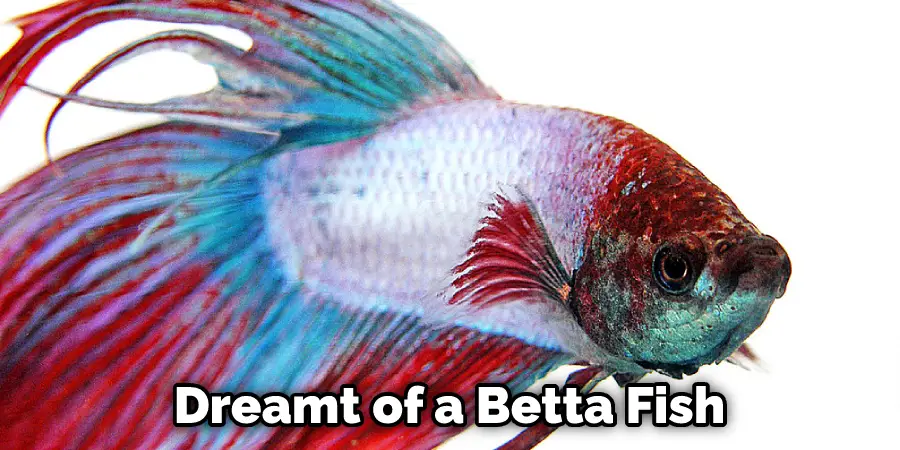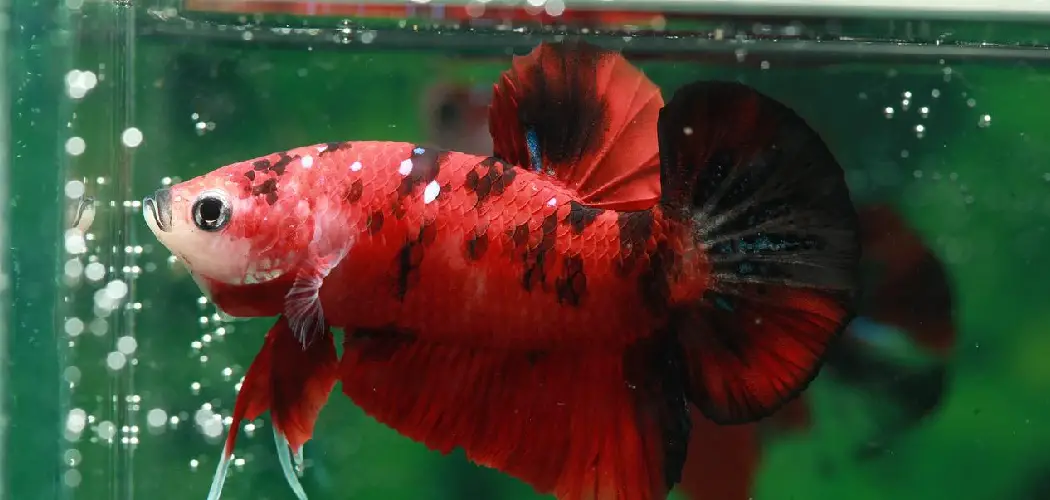Originally posted on May 5, 2023 @ 5:27 pm
Last Updated on 8 months by admin
Betta fish, also known as Siamese fighting fish, have been kept as pets for centuries. But did you know that in some cultures, they are more than just a beautiful addition to a fish tank? These colorful fish are steeped in symbolism, representing everything from good luck to bravery. In this article, we’ll explore the symbolic meaning of Betta fish in different cultures around the world.
From ancient legends to modern-day beliefs, the Betta fish has played a significant role in many cultures. Whether you’re a fish enthusiast or simply curious about the symbolism behind these fascinating creatures, this article will take you on a journey through different cultures and their interpretation of the Betta fish. So, let’s dive in and explore the symbolic meaning of Betta fish!
In Thailand, betta fish are called “pla-kad” and are considered a symbol of good luck. They are often given as gifts to newlyweds and business owners to bring prosperity. In China, the betta fish is known as the “fighting fish” and represents courage and strength. In Japan, betta fish are seen as a symbol of peace and tranquility and are often used in meditation practices. In general, betta fish are admired for their vibrant colors and graceful movements, making them a popular choice for aquarium enthusiasts worldwide.

**The Symbolic Meaning of Betta Fish in Different Cultures**
Betta fish, also known as Siamese fighting fish, are a popular species of fish that have been bred for their vibrant colors and aggressive behavior. These small, beautiful fish are not only prized for their physical attributes but have also been regarded as symbols of luck, strength, and perseverance in various cultures around the world. Here are some of the symbolic meanings of betta fish in different cultures:
**1. Thailand**
In Thailand, betta fish are highly respected and are considered a symbol of good luck. Betta fish were once used in the sport of Siamese fighting, but the tradition was banned in the early 20th century. Since then, betta fish have become a popular pet in Thailand, and many people believe that they bring good fortune to their homes.
Betta fish are also associated with bravery and strength in Thailand. The fish’s aggressive behavior and its ability to fight until the end have made it a symbol of courage and perseverance.
**2. China**
In China, betta fish are seen as a symbol of wealth and prosperity. The fish’s vibrant colors and graceful movements have made it a popular decorative item in homes and offices. It is believed that keeping a betta fish in the home or workplace can attract positive energy and bring good luck.
Betta fish are also associated with the element of water in Chinese culture. Water is a symbol of abundance and fertility, and betta fish are believed to bring prosperity and success to those who keep them.
**3. Vietnam**
In Vietnam, betta fish are considered a symbol of peace and harmony. The fish’s graceful movements and serene demeanor have made it a popular pet in Vietnamese households. Betta fish are also associated with the color red, which is considered a lucky color in Vietnamese culture.
Betta fish are often used in traditional Vietnamese weddings as a symbol of the couple’s unity and harmony. The fish are released into a pond or aquarium during the wedding ceremony, and the couple watches as they swim together in peaceful coexistence.
**4. Japan**
In Japan, betta fish are seen as a symbol of beauty and elegance. The fish’s vibrant colors and delicate fins have made it a popular decorative item in Japanese homes and gardens. Betta fish are also associated with the element of fire in Japanese culture.
Fire is a symbol of passion and energy, and betta fish are believed to bring vitality and enthusiasm to those who keep them. Betta fish are often used in Japanese artwork and literature as a symbol of beauty and grace.
**5. India**
In India, betta fish are considered a symbol of wisdom and knowledge. The fish’s bright colors and sharp instincts have made it a popular subject in Indian mythology and folklore. Betta fish are often associated with the goddess Saraswati, who is the goddess of knowledge, music, and the arts.
Betta fish are also associated with the color yellow in Indian culture, which is considered a symbol of knowledge and learning. It is believed that keeping a betta fish in the home or workplace can enhance creativity and intellectual pursuits.
**6. Indonesia**
In Indonesia, betta fish are seen as a symbol of courage and strength. The fish’s aggressive nature and ability to fight until the end have made it a popular subject in Indonesian folklore. Betta fish are often associated with the legendary hero Joko Tarub, who was known for his bravery and courage.
Betta fish are also associated with the color blue in Indonesian culture, which is considered a symbol of power and authority. It is believed that keeping a betta fish in the home or workplace can enhance leadership skills and bring success in business.
**7. Malaysia**
In Malaysia, betta fish are considered a symbol of love and devotion. The fish’s beautiful colors and graceful movements have made it a popular gift for loved ones. Betta fish are often associated with the Malay legend of Puteri Gunung Ledang, who was known for her beauty and grace.
Betta fish are also associated with the element of earth in Malaysian culture. Earth is a symbol of stability and security, and betta fish are believed to bring a sense of grounding and balance to those who keep them.
**8. Brazil**
In Brazil, betta fish are seen as a symbol of passion and energy. The fish’s vibrant colors and fiery temperament have made it a popular pet in Brazilian homes. Betta fish are often associated with the element of fire in Brazilian culture.
Fire is a symbol of passion and vitality, and betta fish are believed to bring energy and enthusiasm to those who keep them. Betta fish are also associated with the color red in Brazilian culture, which is considered a symbol of love and passion.
**9. United States**
In the United States, betta fish are considered a symbol of beauty and elegance. The fish’s vibrant colors and graceful movements have made it a popular pet in American households. Betta fish are often associated with the element of water in American culture.
Water is a symbol of purity and clarity, and betta fish are believed to bring a sense of calm and serenity to those who keep them. Betta fish are also associated with the color blue in American culture, which is considered a symbol of peace and tranquility.
**10. Conclusion**
In conclusion, betta fish have been regarded as symbols of luck, strength, and perseverance in various cultures around the world. From Thailand to Brazil, these small, beautiful fish have captured the hearts and minds of people everywhere. Whether you keep a betta fish as a pet or simply admire their beauty, there is no denying the symbolic power that these fish hold.
Freequently Asked Questions
What is the symbolic meaning of Betta fish in Thai culture?
In Thai culture, Betta fish are believed to bring good luck and prosperity. They are often given as gifts during weddings and other special occasions. The fish are also seen as a symbol of strength and resilience, as they are known for their ability to survive in harsh environments.
Betta fish are also associated with the Thai god of water, Phra Mae Thorani. According to legend, the god used Betta fish to test the strength and determination of those who sought her help. Those who were able to keep the fish alive were deemed worthy of her assistance.
What do Betta fish symbolize in Japanese culture?
In Japanese culture, Betta fish are seen as a symbol of courage and perseverance. This is due to their aggressive nature, which is seen as a display of bravery and determination.
Betta fish are also associated with the Japanese art of Koi fish breeding, which emphasizes the importance of patience, discipline, and hard work. The process of breeding Betta fish is seen as a metaphor for the pursuit of excellence in all aspects of life.
What do Betta fish represent in Chinese culture?
In Chinese culture, Betta fish are seen as a symbol of good fortune and wealth. They are often kept in homes and businesses to attract positive energy and prosperity.
Betta fish are also associated with the Chinese philosophy of Feng Shui, which emphasizes the importance of balance and harmony in the environment. The fish are believed to bring balance to the home or workplace, and to promote a sense of calm and tranquility.
What is the significance of Betta fish in Hindu culture?
In Hindu culture, Betta fish are seen as a symbol of fertility and abundance. They are often kept in outdoor ponds and water features as a way to promote growth and prosperity.
Betta fish are also associated with the Hindu god of creation, Brahma. According to legend, Brahma created the world by breathing life into the cosmic waters, which were then filled with Betta fish.
What do Betta fish represent in Western culture?
In Western culture, Betta fish are often kept as pets and are valued for their beauty and unique characteristics. They are also associated with the concept of individuality, as each fish has its own distinct personality and behavior.
Betta fish are also seen as a symbol of resilience and strength, as they are able to survive in a variety of environments and conditions. They are often used as a metaphor for overcoming adversity and persevering through difficult times.

10 Betta Fish Cool Facts | Amazing Facts About Betta Fish | 10 Facts About Betta Fish
In conclusion, the betta fish holds great symbolic meaning in various cultures around the world. From its association with good fortune in Thailand to its representation of peace and tranquility in Japan, the betta fish has been revered and celebrated in many different ways.
Despite its small size, the betta fish has left a big impact on cultures spanning across continents. Whether it is its significance as a warrior in ancient Rome or its portrayal as a powerful deity in Hindu mythology, the betta fish has captured the imagination of people throughout history.
In modern times, the betta fish has become a popular pet due to its vibrant colors and unique personality. However, it is important to remember the cultural significance and symbolism that this fish holds. By understanding and appreciating the betta fish’s rich history, we can deepen our connection to this fascinating creature.
